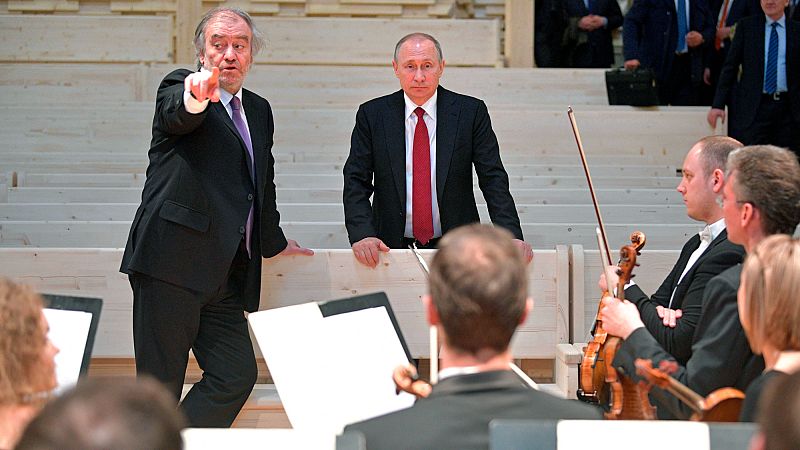
A Controversial Decision: Italian Festival Cuts Ties with Russian Conductor
An Italian classical music festival has made a controversial decision by excluding a renowned Russian conductor, Valery Gergiev, who is known for his close ties to Russian President Vladimir Putin. The event, "Un'Estate da Re" (A King's Summer), was scheduled to take place on 27 July at the Royal Palace of Caserta, located in the courtyard of the Vanvitellian Complex near Naples.
Gergiev’s participation had sparked significant backlash from various groups and individuals, particularly from Yulia Navalnaya, the widow of Alexei Navalny, the late Russian opposition leader who died in a Russian Arctic penal colony in 2021. Navalnaya expressed her approval of the cancellation, stating that no artist supporting the current Russian regime should be welcomed in Europe. She argued that figures like Gergiev help Putin project an image of being a “decent person” in the West.
The Culture Minister of Italy, Alessandro Giuli, also voiced his support for the decision, emphasizing that while the artistic quality of the event is exceptional, the cancellation was based on common sense and moral considerations. He stressed the importance of upholding the values of the free world.
Pina Picierno, vice-president of the Euro Chamber, was among the first to oppose Gergiev’s involvement in the festival. She celebrated the decision, expressing gratitude to those who supported the cause. Picierno highlighted the significance of the event as a demonstration of democratic strength and the importance of standing against authoritarian influence.
The Christian Association of Ukrainians in Italy also welcomed the decision, calling it a victory for human and Christian values over the policies of the Kremlin. Oles Horodetskyy, the association's president, described it as a small but meaningful step toward the broader goal of good triumphing over evil.
Despite the widespread support for the cancellation, Campania's governor, Vincenzo De Luca, remained silent on the matter. He had previously called the situation "disconcerting," questioning where the line between freedom of expression and propaganda lies. De Luca had expressed a desire to proceed with the concert despite international appeals.
Numerous Nobel Prize winners had also spoken out against Gergiev’s participation, sending letters to European Commission President Ursula Von der Leyen and Italian authorities. An online petition garnered over 16,000 signatures, highlighting the public's strong reaction to the issue.
Similar Controversy in Bologna
As attention shifts, a similar case involving authorities in Bologna has emerged. The city is set to host Ukrainian pianist and naturalized Italian Alexander Romanovsky as part of the CUBO summer festival, which is funded by Unipol. Romanovsky gained notoriety for performing on the rubble of the Mariupol theatre, which had been bombed by Russian forces during the invasion of Ukraine.
Italian journalist Marco Setaccioli has led criticism against Romanovsky’s participation, citing his appearances on pro-government Russian channels as evidence of his willingness to support the Kremlin's propaganda machine. In January 2024, La Sapienza University in Rome canceled one of Romanovsky's concerts due to pressure from pro-Ukraine activists and their supporters.
This ongoing debate highlights the complex interplay between art, politics, and ethics, especially in the context of international conflicts and the role of cultural figures in shaping public perception. As these events unfold, they continue to spark discussions about the responsibilities of artists and the impact of their associations on global narratives.
